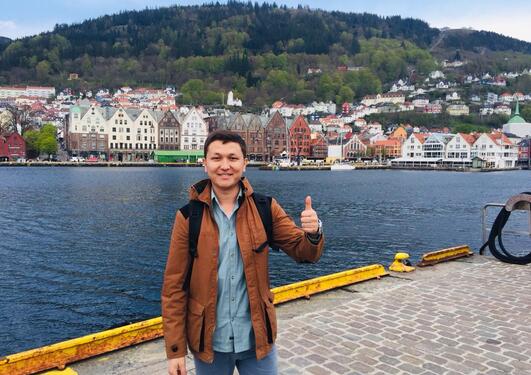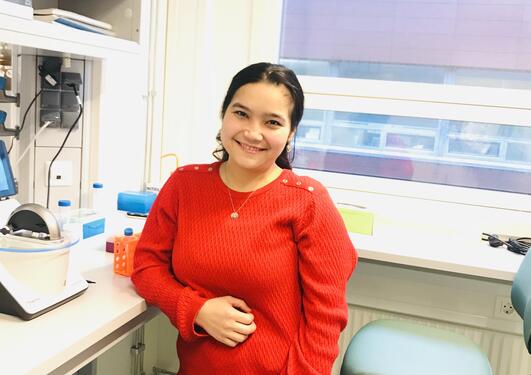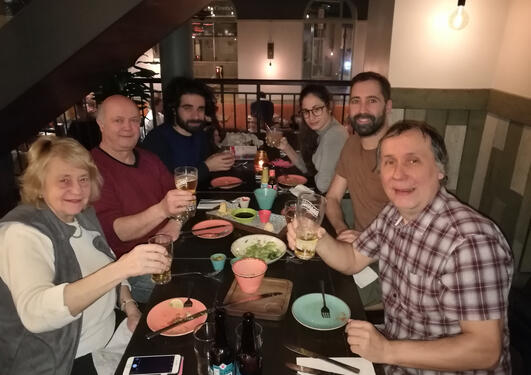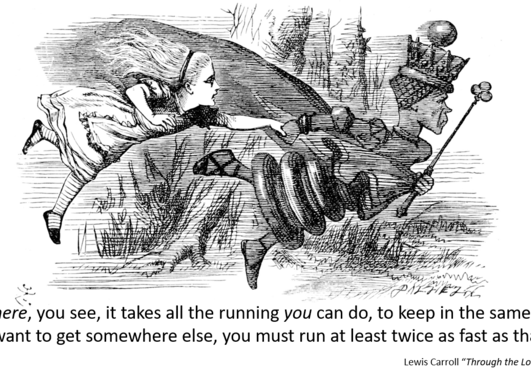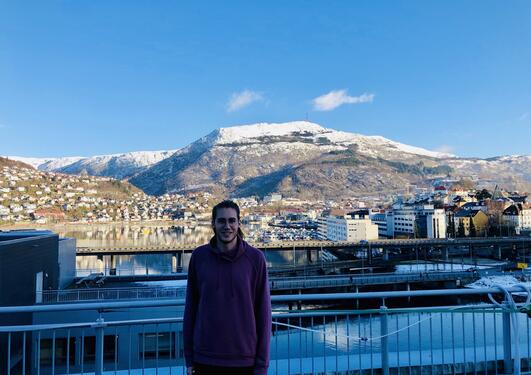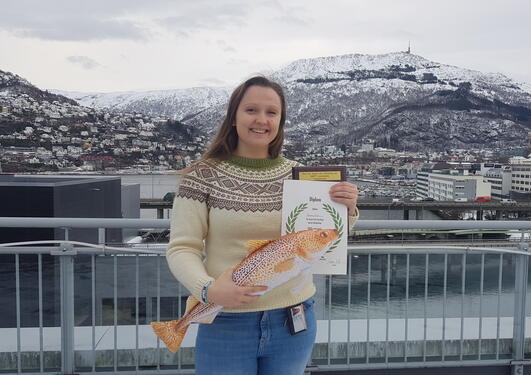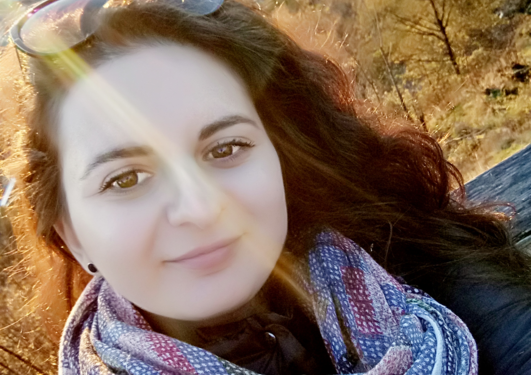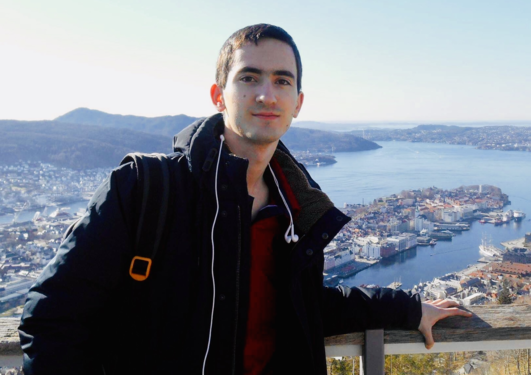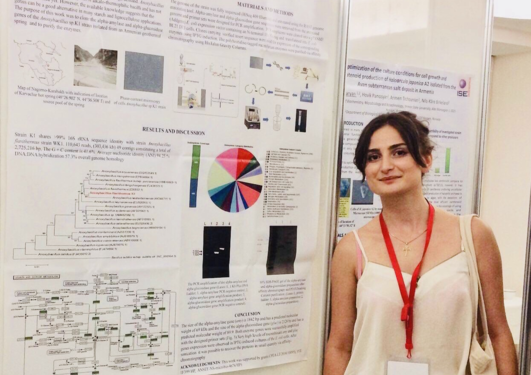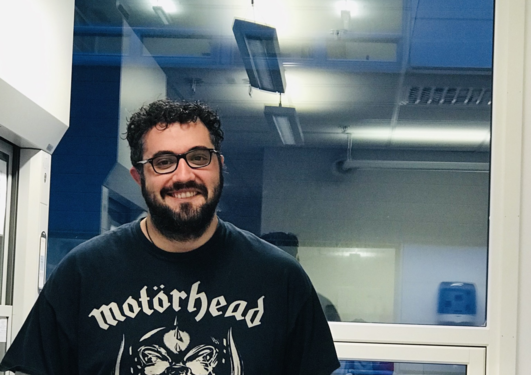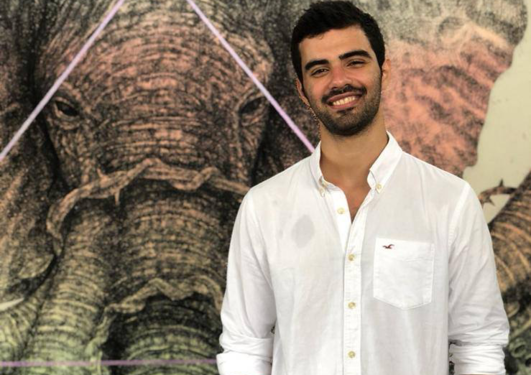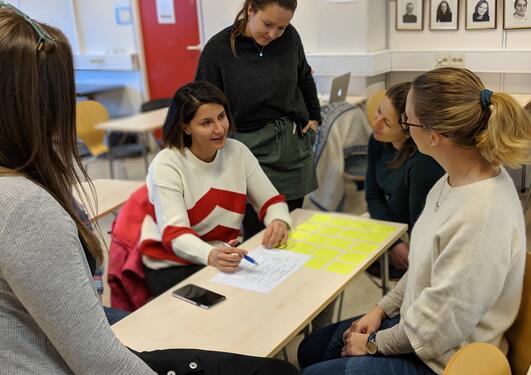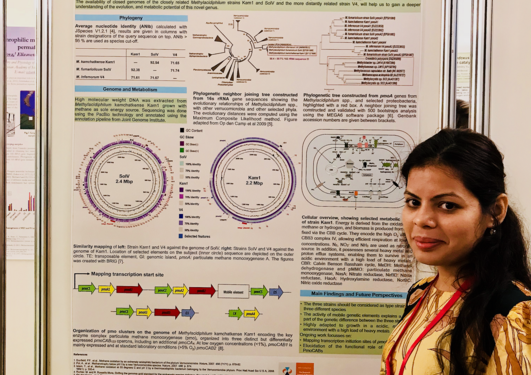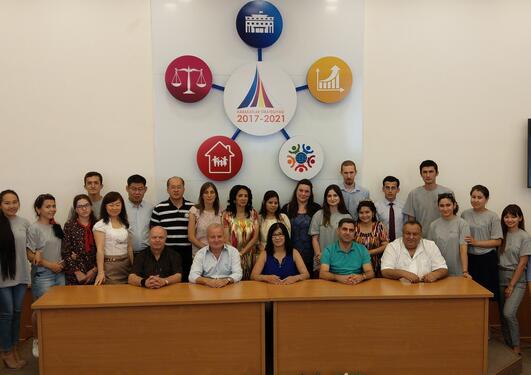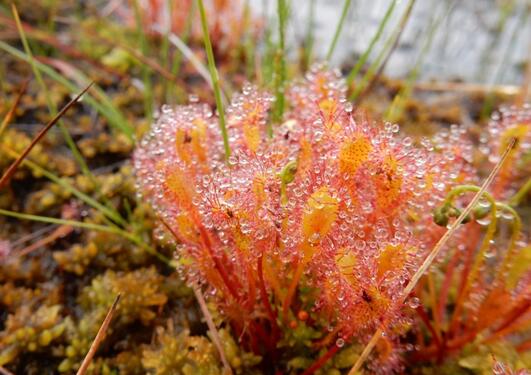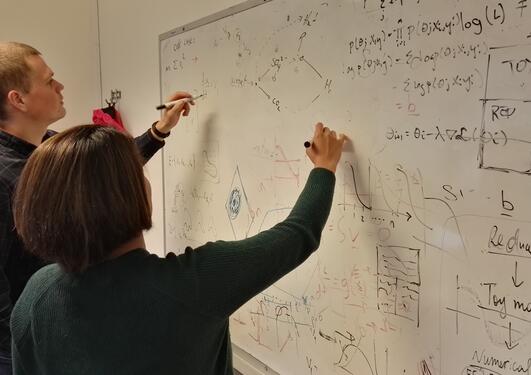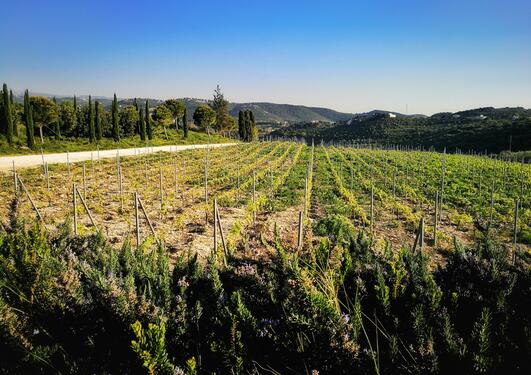News archive for Department of Biological Sciences (BIO)
Jakhongir Alimov, is a master student at National University of Uzbekistan, Tashkent, Uzbekistan.
Ms. Munavvara Dhzuraeva, is a Phd student at the Biotechnology Center, Tajik National University, Tajikistan.
Researcher Antonio Garcia-Moyano made a research visit to the Centre for Biocatalysis at the University of Exeter, United Kingdom, hosted by Professor Jennifer Littlechild. Prof. Littlechild leads a group of experts in biochemistry and structural biology.
New Marinforsk project, led by Ruth-Anne Sandaa (UiB) will explore the co-evolution of host resistance and virulence
Pau Ximeno, student from Barcelona University will be working with us on his bachelor thesis for the Degree in Biotechnology. He will be involved in different tasks related to the development of molecular tools for the expression of thermophilic proteins in Thermus thermophilus.However he will also test the production, purification and activity of proteins in other alternative expression hosts.
The dCod project has been gathered at Beitostølen for the annual winter workshop. Following the workshop, many of us stayed on for the winter meeting of Norsk selskap for Toksikologi og Farmakologi (NSFT), where Karina Dale received award for best presentation in toxicology.
Ani Saghatelyan, is a PhD student at Department of Biochemistry, Microbiology and Biotechnology, Faculty of Biology at Yerevan State University, Armenia.
Pargev Hovhannisyan, a research student from Yerevan State University (Armenia) worked on thermostable alpha-amylase and alpha-glucosidase enzymes from the amylase producer strain Anoxybacills sp. K1.
Ani Azaryan, a master student from Yerevan State University, worked for three months on her master thesis on study of halophilic archaeal strains from Avan salt deposit in Armenia.
Rubén Javier - López has completed his Master’s degree in Microbiology with a study on the novel thermophilic bacterium from hot springs in Tajikistan. Congratulations!
Adam Boulaich, student from Barcelona University worked for four months on his bachelor thesis on the recombinant production, purification and biochemical characterization of two transferase enzymes: dihydroxyacetone synthase (DHAS) from Mycobacterium sp. strain JC1 and sugar aminotransferase (SAT) allegedly related to the thermophilic genus Thermoanaerobacter.
In 2014, I moved from Iran to Norway to start a master program in applied mathematics in University of Oslo. I did not know a single Norwegian word and was not familiar with the culture. On my first day, I took a bus from Sarpsborg to Oslo which took about one and half hours. On the bus, people barely talked, and if they talked I did not understand Norwegian. At that time, I was thinking about... Read more
Our PhD student Chandini Murarilal Ratnadevi was awarded the First Prize for her poster presentation at the European Molecular Biology Organization (EMBO) course in Molecular Geobiology held at European Molecular Biology Laboratory (EMBL) Heidelberg,Germany, August 2018.
Prof. Nils-Kåre Birkeland and students Chandini Murarilal Ratnadevi (PhD) and Eliya Cholakova (MSc) from the “Extremophiles and biotechnology” group at the University of Bergen are heading towards Tashkent to meet fellow extremophiles from Uzbekistan, Tajikistan, Armenia, Georgia, China and Germany.
Project MIXsTRUCT will investigate the impact of mixotrophs on the structure of the marine pelagic food web
When starting my work in the dCod project I had very limited biological knowledge. My background was mostly in applied mathematics, where applied usually refers to something related to physics. Physics, the field of conservation laws, well-studied phenomena and exact equations. And then I now found myself in the situation where I was supposed to do modeling in biology. Biology, a field I had... Read more
I remember reading the following sentence in the announcement of my current post-doc position as part of the dCod project: “The work will involve close collaboration with research groups both from biology and from mathematics”. I thought it was an interesting ambition, but I wasn’t sure how close would this collaboration be and how would it be organized. I guess the scheduled biweekly dCod... Read more
The first AQUACOSM group has arrived at UiB's Marine Biological Station. The international team of scientists are here to study the coccolithophore Emiliania huxleyi.
Pages
- February 2026 (2)
- December 2025 (1)
- November 2025 (1)
- October 2025 (1)
- September 2025 (3)
- July 2025 (3)
- June 2025 (2)
- May 2025 (2)
- April 2025 (2)
- March 2025 (2)
- February 2025 (3)
- January 2025 (2)
- December 2024 (3)
- November 2024 (5)
- October 2024 (4)
- September 2024 (4)
- August 2024 (6)
- July 2024 (2)
- June 2024 (4)
- May 2024 (7)
- April 2024 (5)
- March 2024 (3)
- February 2024 (8)
- January 2024 (3)
- December 2023 (4)
- November 2023 (4)
- October 2023 (4)
- September 2023 (6)
- August 2023 (4)
- July 2023 (1)
- June 2023 (3)
- May 2023 (3)
- April 2023 (1)
- March 2023 (3)
- February 2023 (6)
- January 2023 (5)
- December 2022 (1)
- November 2022 (2)
- October 2022 (2)
- September 2022 (2)
- August 2022 (1)
- July 2022 (3)
- June 2022 (2)
- April 2022 (2)
- March 2022 (1)
- February 2022 (6)
- January 2022 (3)
- December 2021 (1)
- October 2021 (1)
- September 2021 (1)
- June 2021 (3)
- May 2021 (3)
- April 2021 (1)
- March 2021 (2)
- February 2021 (2)
- January 2021 (1)
- December 2020 (2)
- October 2020 (1)
- September 2020 (1)
- July 2020 (2)
- April 2020 (1)
- March 2020 (1)
- February 2020 (1)
- December 2019 (2)
- November 2019 (2)
- June 2019 (3)
- May 2019 (3)
- March 2019 (1)
- February 2019 (3)
- January 2019 (1)
- December 2018 (3)
- November 2018 (4)
- October 2018 (2)
- August 2018 (1)
- June 2018 (1)
- May 2018 (4)
- April 2018 (1)
- March 2018 (1)
- February 2018 (1)
- January 2018 (1)
- November 2017 (2)
- October 2017 (2)
- September 2017 (1)
- June 2017 (1)
- May 2017 (1)
- March 2017 (3)
- January 2017 (3)
- December 2016 (2)
- November 2016 (3)
- October 2016 (1)
- September 2016 (2)
- June 2016 (1)
- May 2016 (2)
- April 2016 (2)
- February 2016 (6)
- January 2016 (4)
- December 2015 (7)
- November 2015 (3)
- October 2015 (2)
- September 2015 (2)
- August 2015 (2)
- July 2015 (1)
- June 2015 (2)
- May 2015 (2)
- April 2015 (1)
- March 2015 (1)
- February 2015 (5)
- January 2015 (1)
- December 2014 (1)
- October 2014 (1)
- September 2014 (5)
- July 2014 (1)
- June 2014 (1)
- May 2014 (3)
- March 2014 (1)
- February 2014 (2)
- January 2014 (2)
- December 2013 (3)
- November 2013 (2)
- October 2013 (4)
- September 2013 (4)
- August 2013 (3)
- July 2013 (1)
- June 2013 (2)
- May 2013 (5)
- April 2013 (5)
- March 2013 (1)
- February 2013 (2)
- January 2013 (3)
- December 2012 (1)
- October 2012 (2)
- September 2012 (3)
- August 2012 (2)
- July 2012 (2)
- June 2012 (2)
- January 2012 (3)
- December 2011 (2)
- November 2011 (4)
- October 2011 (1)
- September 2011 (7)
- July 2011 (3)
- June 2011 (4)
- May 2011 (1)
- April 2011 (2)
- March 2011 (3)
- February 2011 (1)
- January 2011 (2)
- November 2010 (3)
- October 2010 (1)
- September 2010 (4)
- August 2010 (2)
- June 2010 (3)
- May 2010 (2)
- April 2010 (3)
- March 2010 (1)
- February 2010 (4)
- January 2010 (5)
- December 2009 (1)
- September 2009 (1)
- August 2009 (3)
- July 2009 (1)
- June 2009 (5)
- May 2009 (3)
- March 2009 (2)
- February 2009 (1)
- January 2009 (2)
